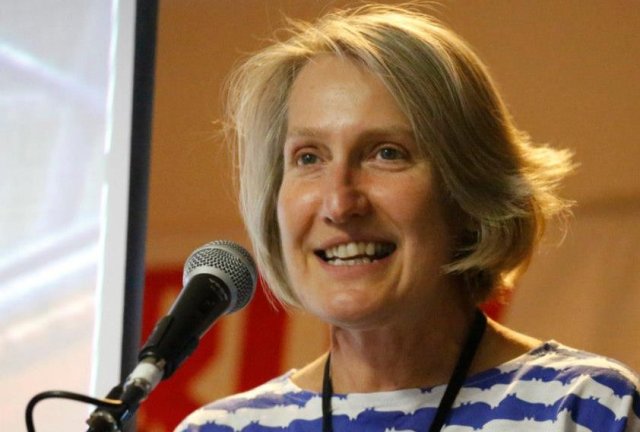
Many councils across Australia have local laws that restrict free speech. Most people are unaware of these laws, until there is an issue that engages them enough to want to exercise their right to free speech and set up a stall, hand out leaflets, get petitions signed and maybe organise a protest rally.
Only when a council officer tells them they have to pack up and leave, do they realise there are undemocratic laws on the books.
Moreland residents were similarly unaware of the undemocratic laws on the books until Socialist Alliance councillor Sue Bolton alerted them to the proposal for a new general local law in Moreland that would seriously impact their right to protest if it were passed.
Residents from a wide range of local groups rallied outside the Coburg Town Hall prior to the council meeting on July 12 to voice their opposition to the laws. They then took their questions and opposition to the local laws into the council chamber to directly challenge councillors to delete the anti-democratic laws.
Most of the anti-democratic and anti-homeless laws are current local laws, despite most people being unaware of their existence. But a new local law banning protests without a permit was not acknowledged as a new local law in the council report.
Sue Bolton said that she originally came from Queensland where the National Party government of Joh Bjelke-Peterson banned street marches. To do this, he didn't introduce new laws but just dusted off old laws and started refusing permits for street marches.
The clause banning protests without a permit says: “A person must not without a permit: (a) unreasonably obstruct or interfere with the passage of pedestrian or vehicular traffic in or on a public place; or (b) invite encourage or allow the congregation of persons so as to unreasonably obstruct or interfere with the passage of pedestrian or vehicular traffic in or on a public place.”
Other proposed laws include bans on leafleting, soliciting for money, busking, holding stalls, doing street art or camping in a public place without a permit.
Someone from the No Homeless Ban campaign pointed out that the no camping ban was clearly detrimental to homeless people.
One questioner was Steve Roach, former Moreland councillor and Construction Forestry Mining and Energy Union organiser. He described the local laws regulating people's behaviour in public places as being over the top while corporations that harm workers and the environment get off with very light regulation.
Several questioners raised the fact that the proposed local laws would contravene sections of the Charter of Human Rights and Responsibilities Act 2006 regarding free speech.
Some of the current undemocratic laws have been used. During last year’s council elections, candidates were instructed by council officers that they could not hold an information stall without a permit, or have A-frame signs outside early polling booths. Most candidates could not recall this occurring previously.
Residents scored some victories. The ban on protests, the ban on hand bills and the ban on soliciting for money were struck out.
However the ban on street stalls still stands, the ban on busking, except in specific undefined areas, still stands, and camping is allowed only in some undefined areas, unless you are homeless or have a mental illness.
Deleting these anti-democratic clauses was a big victory but there is now a push to get rid of the remaining anti-democratic and anti-homeless clauses remaining in the draft General Local Law.
The banning of placing furniture in a public place (community stalls) is problematic for community groups. Any serious campaign group needs at least a small table to campaign around their issue: to collect signatures on a petition, display information, and collect names of people interested in helping the campaign. A permit is proposed to cost $300 and the penalty for having a stall without a permit is five penalty points ($500).
While some anti-homeless clauses were deleted, the modified clause on camping is still problematic. It is difficult to understand and most homeless people just want to be left alone to find the safest place to sleep.
The new clause reads: “Camping in a vehicle, tent, caravan or any other type of temporary provisional accommodation is permissible in public areas of the municipality that are prescribed by Council. Camping for recreational purposes is not permissible in other public areas unless:
(A) a person is homeless or is in need of secure accommodation; or
(B) a person is experiencing challenging circumstances and is in need of additional support.”
Given the lack of information about where camping might be allowed and the lack of definitions of who council officers might consider to be homeless, it is feared that this clause could be implemented in an arbitrary way. It would be better to delete the clause altogether.
Now, the Draft General Local Law will go out to community consultation until August 13 and it will be voted on later in the year.
People who support free speech in Moreland are keen to keep on campaigning to remove the remaining antidemocratic local laws.
Like the article? Subscribe to Green Left now! You can also like us on Facebook and follow us on Twitter.